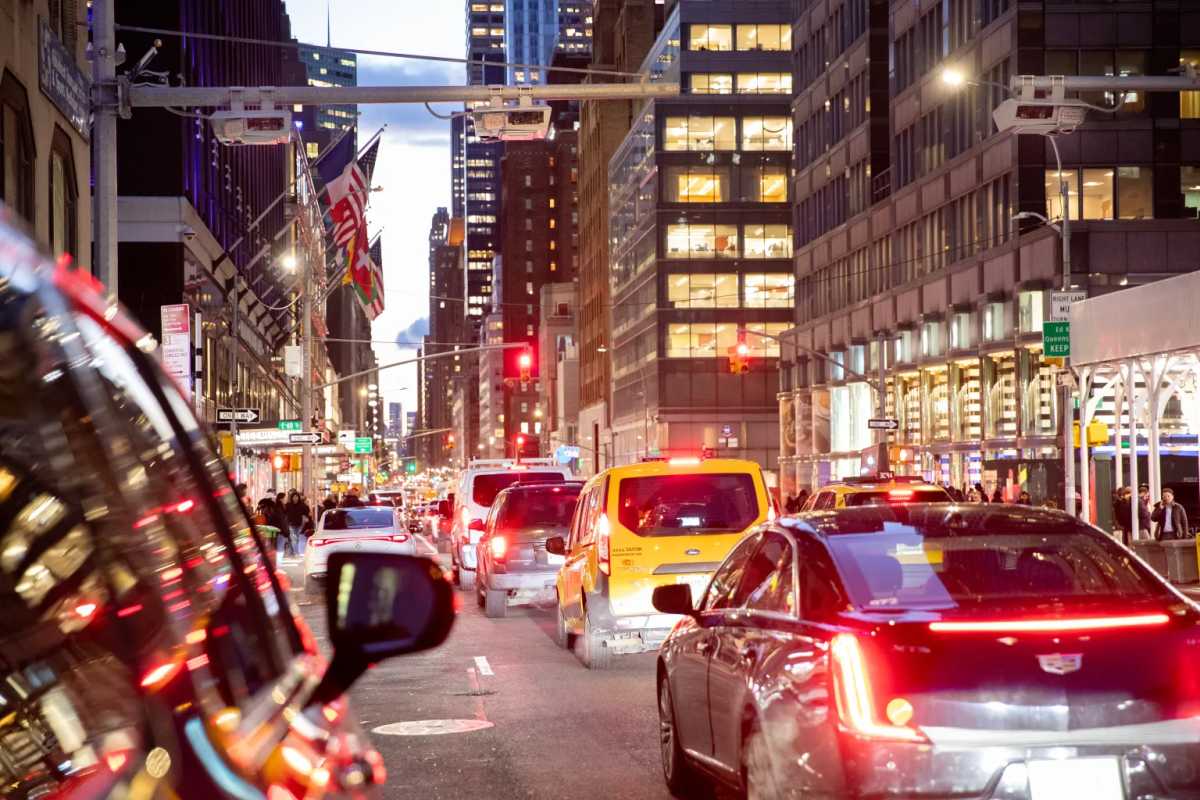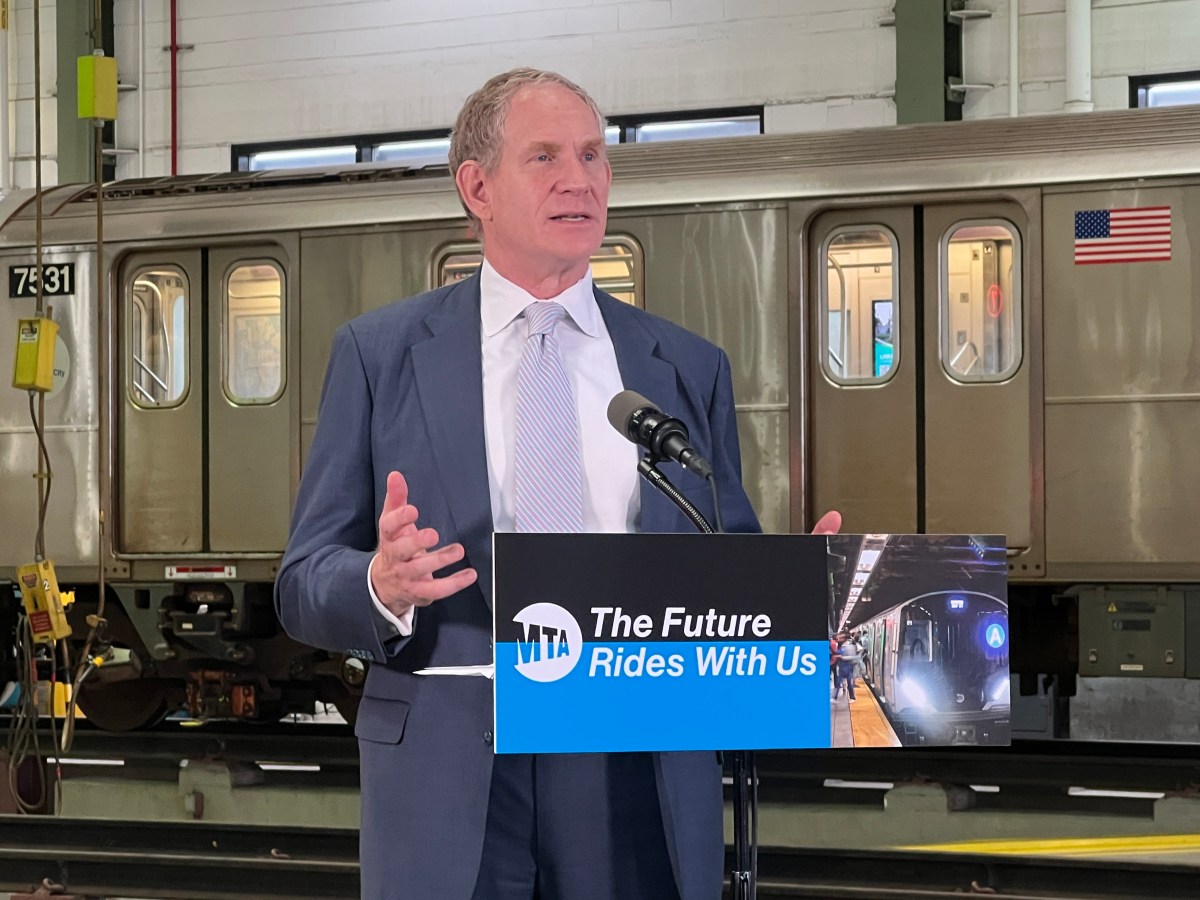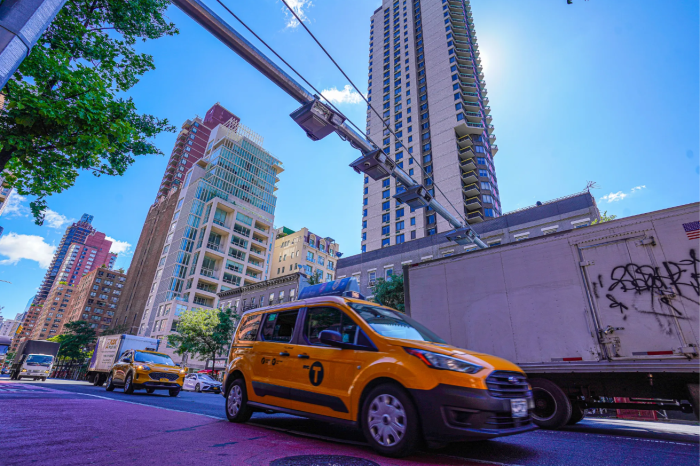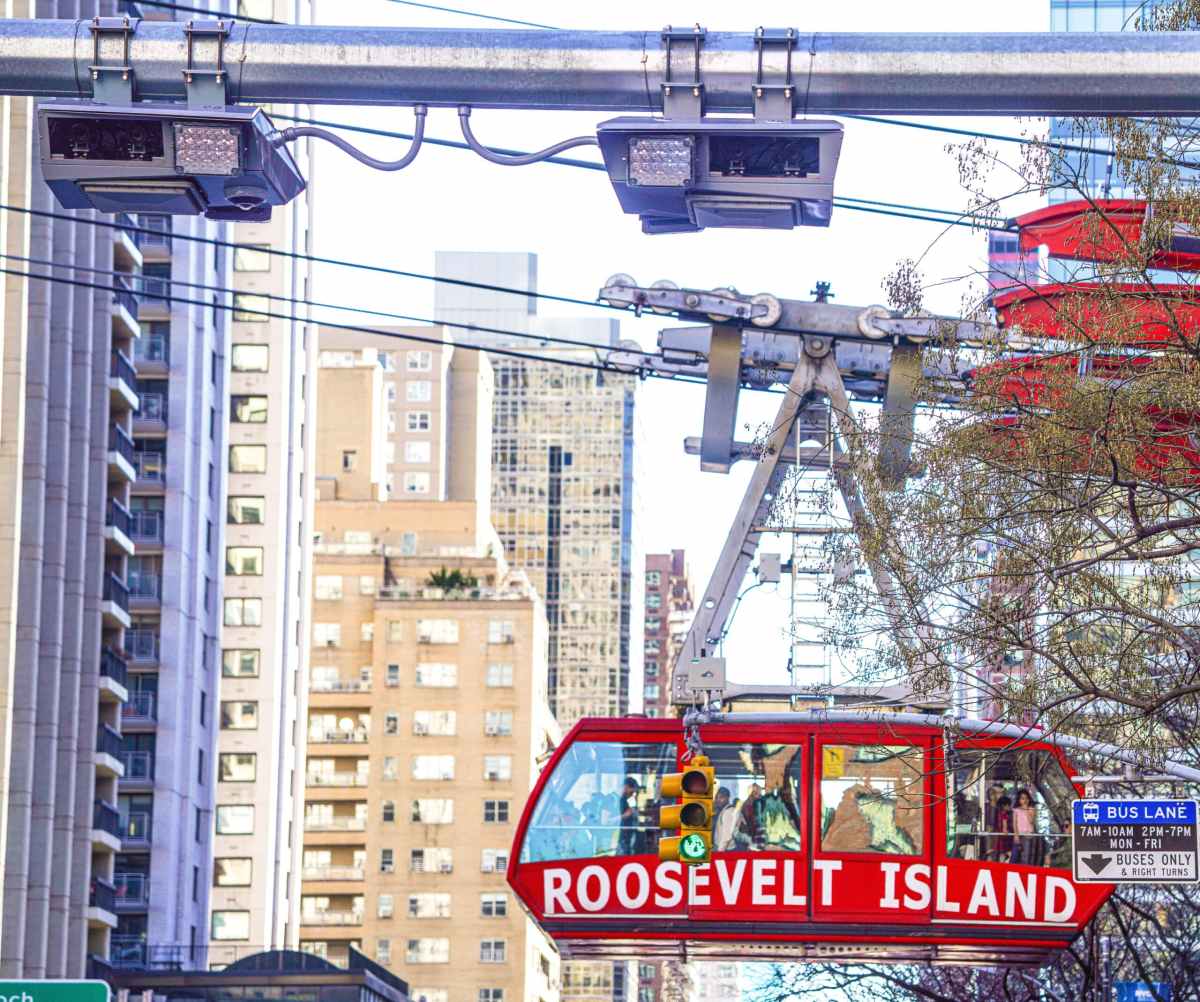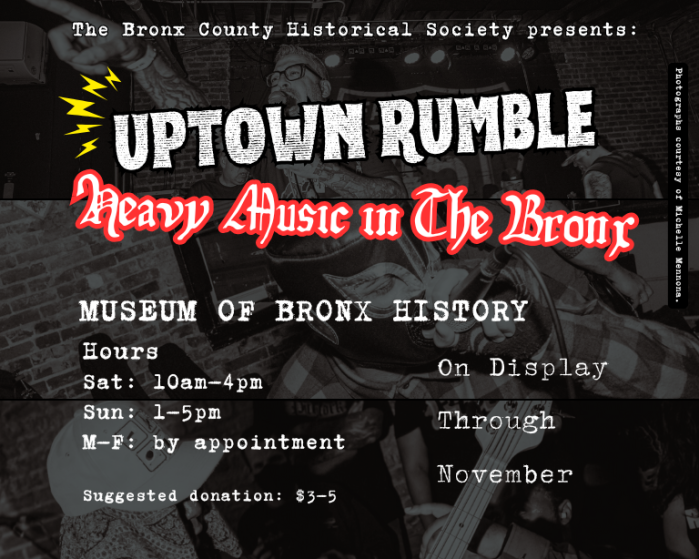Stakeholders and representatives in the Bronx are divided over the relaunch of the congestion pricing plan for vehicles entering Manhattan’s Central Business District now set to begin in January 2025.
Gov. Kathy Hochul announced Thursday that the revamped plan will see passenger cars charged $9 during peak hours to enter Manhattan below 60th Street with a 75% discount for off-peak hours. The $9 toll is 40% less than the $15 that was initially proposed late last year before the plan was nixed in June.
Advocates for the congestion pricing say the funds that the program will collect for the MTA are severely needed to update a crumbling infrastructure, but some Bronxites are skeptical that their borough will see those investments, especially after its history of divestment and neglect from the city.
City Council Speaker Adrienne Adams emphasized that the revenue generated from congestion pricing must also be used to help New Yorkers who live in transit deserts like sections of the Bronx—as well as to upgrade the overall system.
“Addressing these longstanding inequities, and meeting the transportation needs of New Yorkers in every part of our city, must be a continued focus for all levels of government,” said Speaker Adams in a statement. “As this plan moves forward, it is critical for all stakeholders to focus on making our city more affordable and accessible to ensure New Yorkers are able to sufficiently meet living requirements and responsibilities.”
The congestion pricing plan earmarked specific funds for the Bronx including $15 million to replace diesel-powered Transport Refrigeration Units at Hunts Point Produce Market, $20 million to fund an asthma care center and $10 million to add air filtration systems to schools near highways.
Some Bronx representatives spoke out against the plan. Republican Council Member Kristy Marmorato, who represents District 13 in the Northeast Bronx, took to X Thursday accusing Hochul of hitting pause on the original pricing plan back in June for political reasons, given the hefty toll drivers face.
“This isn’t about congestion relief; it’s about profiting off working families,” Marmorato said in the post, referring to the revised plan.
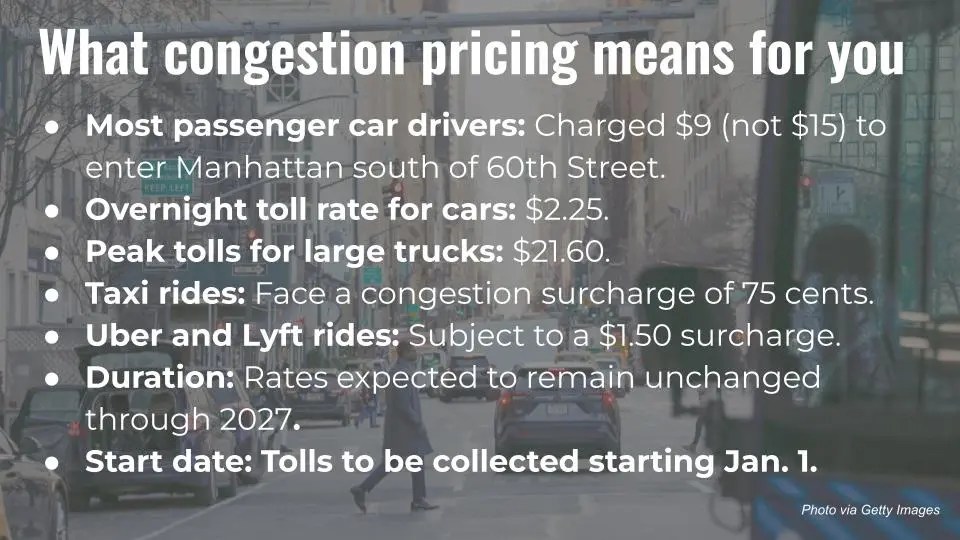
Meanwhile, Bronx State Senator Gustavo Rivera, came out in support of the reinstated plan, in a statement.
“Congestion pricing is the law in New York State, so I’m thankful and relieved that Governor Hochul and the MTA have made the important decision to implement it,” Rivera said. “It will positively impact more than 95% of commuters who do not regularly drive their cars into lower Manhattan. That includes the overwhelming majority of my constituents who use a bus or a train every single day.”
But many Bronxites say the cost of the plan is too high and is not likely to improve transit in the Bronx. Robert Delgado, 52, has lived in the Bronx all his life. He owns a car but said that he usually takes the train when he wants to go into Manhattan. Delgado said he didn’t trust that the additional funds would go towards promised improvement, mostly because he already questions what the MTA does with the revenue for fares.
“The price of the train is high,” Delgado said. “So, where’s that money going to?”
Patricia Toledo, a lifelong Bronxite, said she takes her car when she needs to go to downtown Manhattan.
“It’s just too much,” Toledo said. “Inflation is crazy. We’re paying the city, and what are we getting in return? So no, I’m not for the congestion pricing.”
But the new plan does provide concessions for low income New Yorkers. Residents who earn less than $50,000 annually, or who are enrolled in a qualifying government assistance program, are eligible to receive a 50% discount during peak hours that would be applied after the first 10 trips into the CBD in a month. With a median household income of around $46,000 in the borough, many Bronx drivers would qualify for a reduced toll.
Some major Bronx employers with delivery trucks going in and out of the CBD will feel the weight of congestion pricing, a financial reality with the potential to impact employees, although indirectly.
Baldor Specialty Food which supplies thousands of New York City restaurants and retailers with specialty foods and produce, has its distribution center in Hunts Point. About 60% of its 2,000 employees at the distribution center live in the Bronx, according to Senior Vice President of Logistics, Seth Gottlieb.
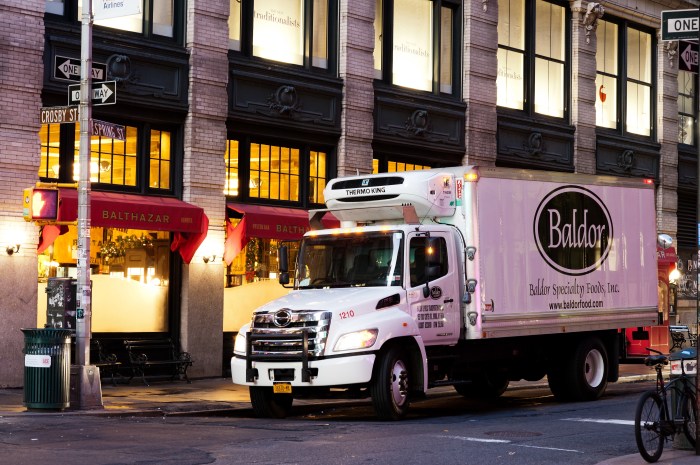
Over 70 Baldor trucks a day drive into the CBD. Gottlieb said that the additional costs will impact Baldor, as well as other employers in Hunts Point.
The new plan charges small delivery trucks $14.40 to enter the CBD and large ones $21.60, while taxis and ride-share companies will be charged per ride within the congestion area.
“If you think about it, 60% of the food that gets consumed in the city comes out of Hunts Point,” said Gottlieb. “So, the impact to the entire Hunts Point community and all the businesses that are receiving that food will all be impacted.”
Gottlieb said that while Baldor is committed to keeping staff and maintaining its quality of service. He noted that the information was still fresh, and the food distributer still needed time to evaluate what the additional costs would mean.
It’s not just shipping companies that will be negatively impacted; some taxi drivers have concerns that piling on another surcharge will turn-off passengers.
William Perez has driven for a Bronx based taxi company for 27 years. He called the plan “terrible, every which way” and noted that the additional charges to riders would make it more difficult to find fares. The new plan would levy a $0.75 charge per trip for taxis and black cars to be passed on to riders. For ride-share drivers, that fee is increased to $1.50.
“People aren’t going to pay that kind of money,” Perez said. “We’re already not getting fares outside the borough, only around Manhattan.”
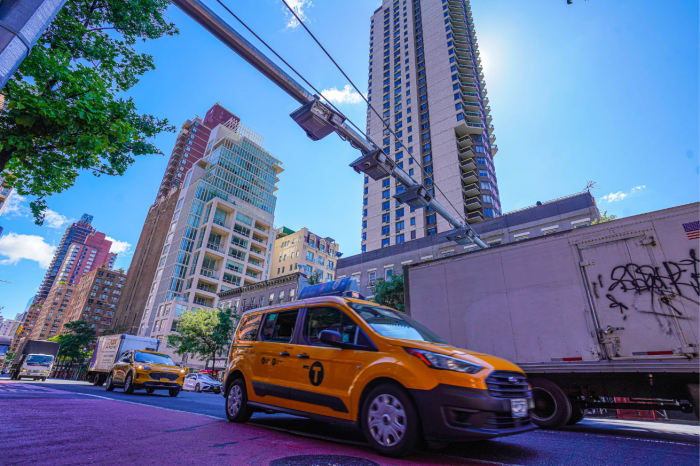
But there are many in the Bronx who support the introduction of the new tolls. Chris Keegan, a college professor who lives in Riverdale, said he supports congestion pricing, while noting that the plan may not be perfect, it’s necessary.
He did note that it will be difficult for some residents who are waiting on the MTA to complete the Metro North stations that are coming to Hunts Point, Parkchester/Van Nest, Morris Park and Co-Op City.
“Until some of those Metro North stations get up and running, I think it’s gonna be painful for a lot of people, for the next three or four years,” Keegan said.

